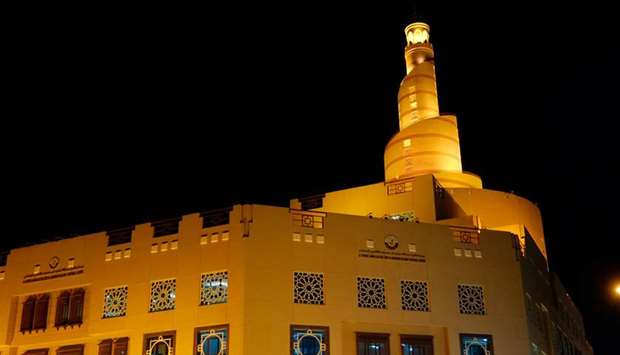The scope of worship in Islam is universal, in the literal sense. For the Qur’an tells us that each and every constituent of creation near or far, seen or unseen, animate or inanimate - worships The True and Only God. “Indeed, every being in the heavens and the earth but comes to the All-Merciful as a worshipper.” [Qur’an; 19: 93] It is only human beings, then, that are called upon to voluntarily join in the wonderful symphony of worshipful creation.
Islam’s five pillars are the cornerstones upon which we build such an outstanding and worshipful life. But no such establishment of a dignified life of faith on earth, either personally or socially, can take place without one essential pillar that represents the intersection of our professed convictions and our practical lives. Zakat is that pillar, for it is the primary instrument that Allah has placed at our disposal to spiritually and socially uplift every Muslim and the entirety of our community and thereby to assert a benevolent hand for the commonweal of humanity. Among Zakat’s most blessed manifestations - and certainly its most widespread - is the obligatory annual giving of the Zakatul-Fitr charity, before the solemnising of Ramadan by Eid prayer.
The Arabic word ‘Zakat’ means ‘purity,’ ‘cleansing,’ ‘wholesomeness,’ and ‘integrity’ (in both their physical and moral senses).
Zakatul-Fitr is also known as Sadaqatul-Fitr, or the Sincere, or Righteous Charity of Fast Breaking, because it testifies to one’s sincerity to Allah and his or her righteousness in seeking to comply with Allah’s legislation, or Sanctioned Laws and legislations.
Zakat’s primary goal is not that of simple “charity.” Allah has instituted other mechanisms for this purpose. Rather, Zakat is much farther seeing and reaching. Its objective is to secure the psycho-spiritual well-being of every single Muslim as an individual servant of Allah, and to safeguard the socio-moral welfare of the entire Muslim nation.
Originally, the stated amount of Zakatul-Fitr was a Saa’ (four handfuls) of dates, or barley, or wheat. A Saa’ was a “goblet,” or drinking utensil, at the time of the Prophet, sallallaahu ‘alaihi wa sallam. A Saa’ is now estimated to be equal to anywhere from 2.176 to 2.25kg, or just under 5lb.
Every Muslim is liable for the payment of Zakatul-Fitr, provided food exists for one, and one’s dependents, for Eid eve and the following day. Knowing now what a Saa’ is, in terms of its contemporary weight equivalents, we can be more exact in defining who is liable to make the Zakatul-Fitr payment. Every Muslim, whether rich or poor, who possesses (or has stored on his behalf) grains, or similar foodstuffs - or the monetary means of achieving the like of this - sufficient for one’s sustenance, and that of one’s dependents for a full night and day, must give Zakatul-Fitr.
This sum is due not per household, but per person. The Prophet, sallallaahu ‘alaihi wa sallam, said: “Give Zakatul-Fitr on behalf of [all your] dependents” [Al-Bayhaqi], for he indicated that Zakatul-Fitr would purify the wealth of the rich and be the cause of Allah giving more to the poor than what they have given. Thus whoever meets the feeding requirements for his or her family must pay Zakatul-Fitr for each and every household member.
A man is obliged to pay Zakatul-Fitr for his wife and minor children who have no money of their own. In the case of one who has independent children, one is not obliged for their payment.
What is obligatory is the giving of a Saa’ of dates, barley, raisins, or other such grain. Originally, the giving of Zakatul-Fitr was limited to the kinds of food that
had been stated in the relevant statement of the Prophet, sallallaahu ‘alaihi wa sallam. However, jurists have established (through proper methods) that it may be given out of other commonly consumed foods, such as rice, meat, milk and so forth, but should be valued in accordance with the items specified by the Prophet, sallallaahu ‘alaihi wa sallam.
Zakatul-Fitr must be given before Eid prayer. It is forbidden to delay it until after the Eid day.
It is permissible for one to delegate another to give Zakatul-Fitr on one’s behalf.
Article source: http://www.islamweb.net/emainpage/

Fanar building in Qatar
